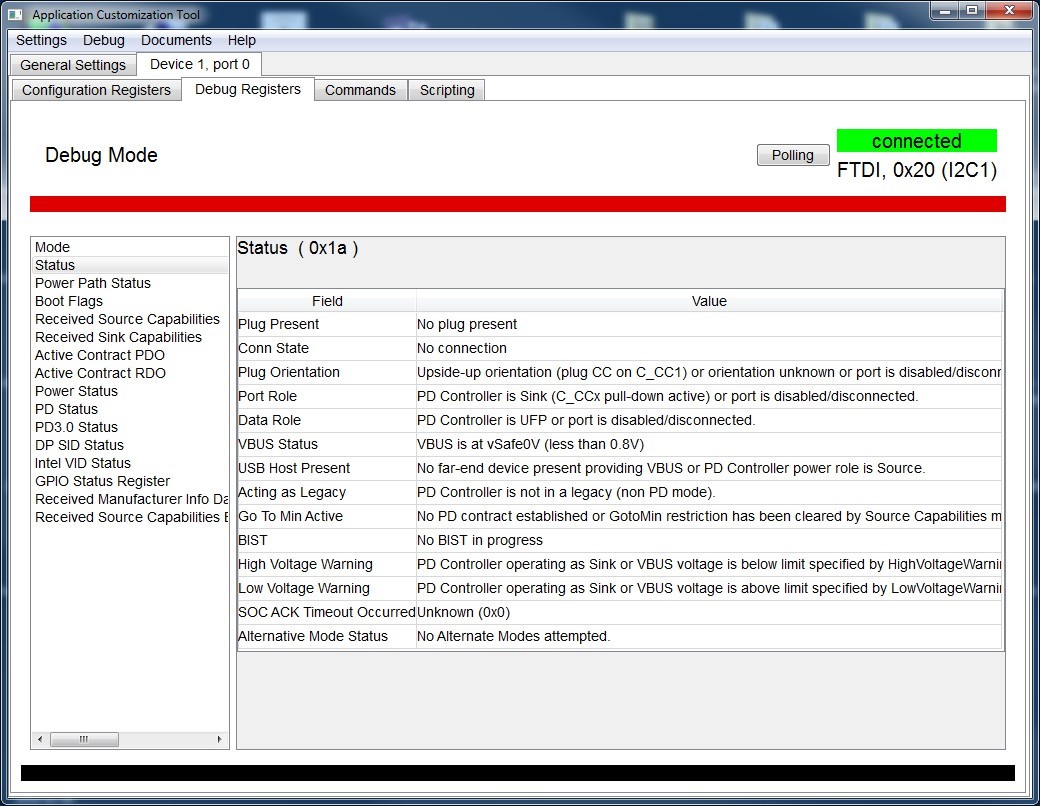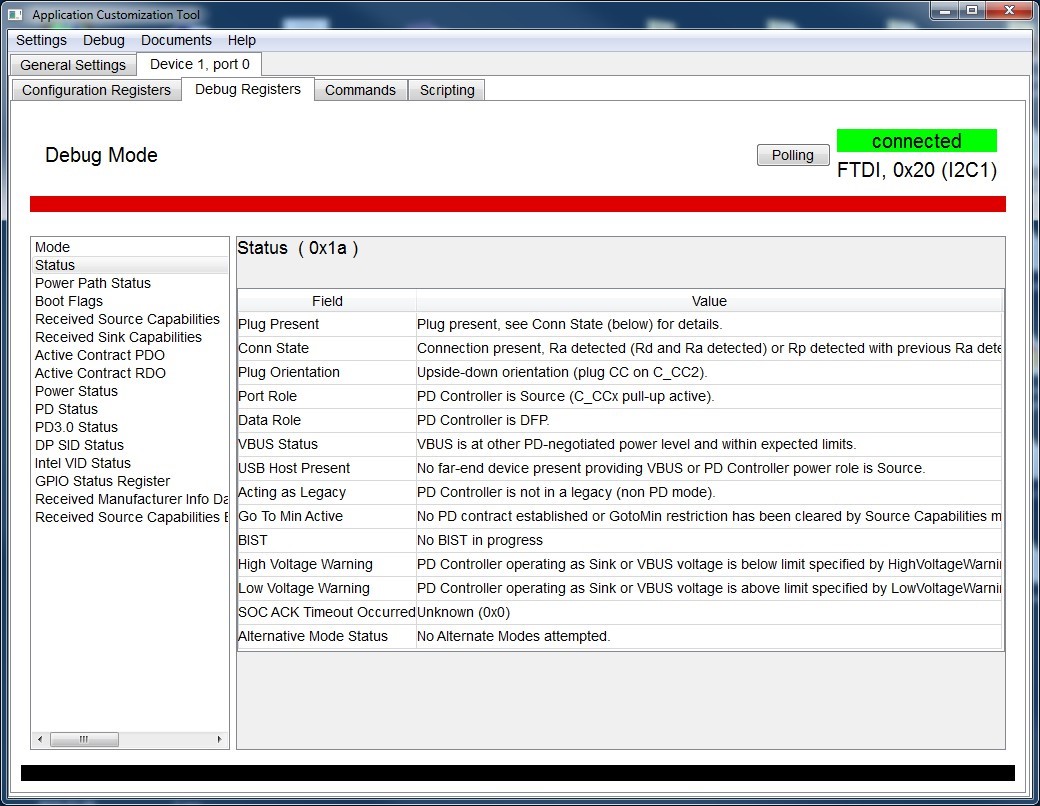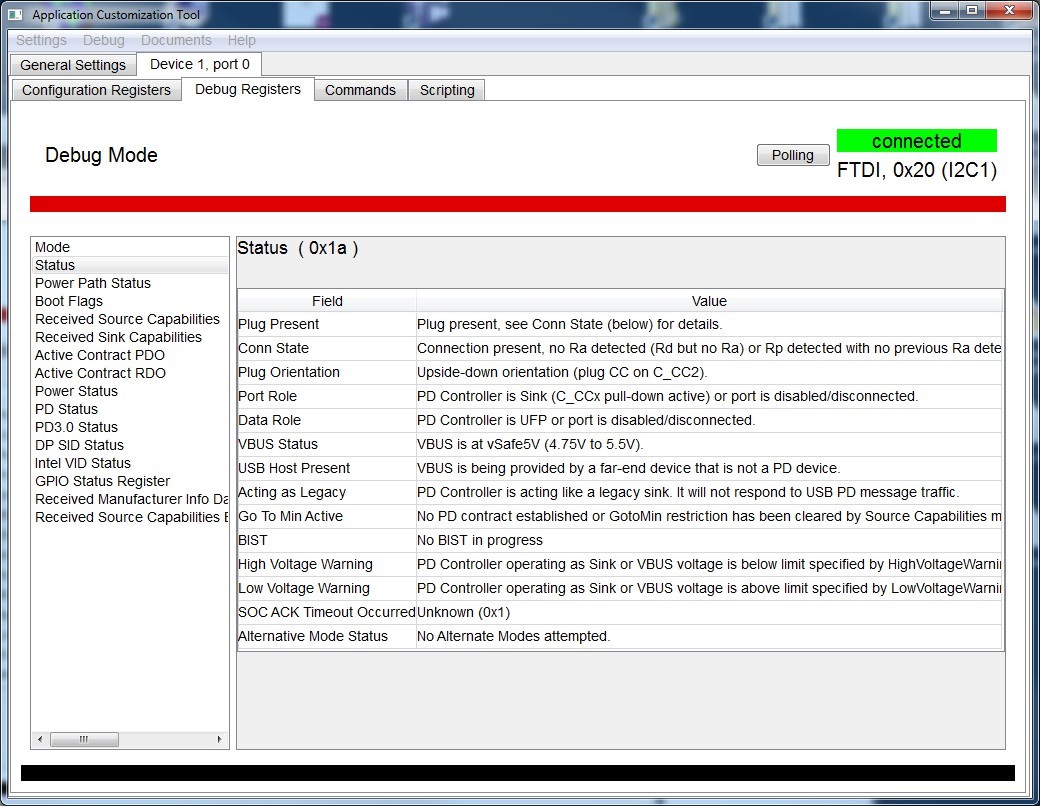Other Parts Discussed in Thread: TPS65987, TPS65981, TPS65987D
Hi,
our use case: We want to startup a switched-off smartphone (Galaxy S9) using TPS65981 or TPS65987.
The S9 starts up in battery charge mode when 5V is connected to VBUS as this is the simplest USB 5V charging method.
So how can we have the TPS65981 / 65987 to switch PP_HV or PP_5V to the VBUS when no cable is detected?
Or is it alternatively possible to startup a smartphone also by applying 5V via PP_CABLE to CC1/2?
Thanks in advance
BR Roland




